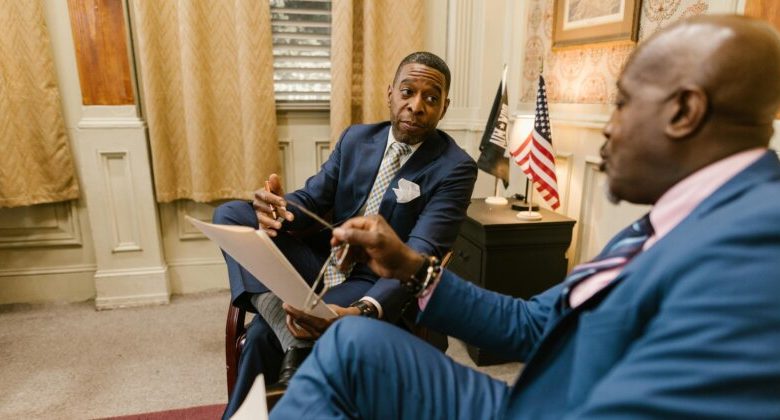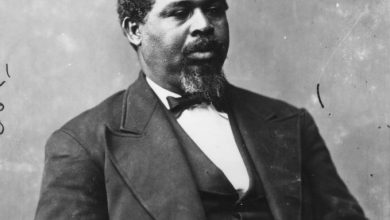The Influence of Black Leaders on Casino Legalization in Africa and the USA

The world of casinos is more than just flashing lights and high-stakes games; it’s a reflection of economic policies, legal battles, and social movements. In Africa and the United States, the push for gambling legalization has been deeply intertwined with the efforts of Black politicians and activists. These influential figures have worked to shape policies, ensuring that the benefits of regulated casinos reach their communities while safeguarding against potential pitfalls. At Spinanga Casino, we explore the impact of these key players on the evolving gambling industry.
Africa’s Gambling Renaissance: The Role of Black Political Figures
Across Africa, the gambling industry has seen exponential growth, with several nations embracing casino operations as a pathway to economic prosperity. However, the move toward legalization has not been without its challenges. The involvement of Black policymakers has been crucial in creating regulations that balance economic expansion with responsible gaming practices.
Economic Expansion and Political Advocacy
Countries like South Africa, Kenya, and Nigeria have become major hubs for casino gaming. Black political leaders have been instrumental in pushing for laws that regulate and tax the industry while ensuring that gambling revenues benefit local economies. One such example is South Africa’s former finance minister Tito Mboweni, who has advocated for structured gaming laws that promote job creation and fair taxation.
South Africa’s Gambling Act of 1996 was a turning point, setting the stage for legalized gaming that prioritizes economic growth while implementing responsible gambling measures. Spinanga acknowledges that the successful integration of casinos into African economies relies on well-crafted legislation that fosters both industry expansion and social responsibility.
Activists and Ethical Gaming Reforms
While politicians focus on the financial and regulatory aspects of gambling, Black activists have taken on the role of watchdogs, ensuring that vulnerable populations are protected from potential exploitation. Organizations like the African Responsible Gaming Foundation have championed policies that curb gambling addiction and promote fair gaming practices.
Kenyan advocacy groups have also been vocal about the importance of public education on gambling risks. Their efforts have influenced lawmakers to introduce mandatory responsible gambling campaigns in casinos. These initiatives help mitigate addiction while ensuring that casinos contribute positively to society. Spinanga Casino supports responsible gambling policies that protect players while allowing the industry to thrive.
The United States: A History of Black Leadership in Casino Reform
The legalization of gambling in the U.S. has been a complex and often contentious issue. While Las Vegas and Atlantic City have long been synonymous with high-stakes gaming, the landscape of gambling has expanded, including state-run casinos, tribal gaming, and online platforms. Black politicians and activists have played a key role in ensuring that casino policies are equitable and inclusive.
Black Lawmakers and Inclusive Casino Policies
Historically, Black lawmakers in the United States have advocated for policies that allow minority communities to benefit from legalized gambling. Figures such as Representative John Conyers championed fair licensing laws that opened doors for Black entrepreneurs to enter the casino industry.
One of the most significant developments in U.S. gambling was the rise of tribal casinos, which Black politicians supported to empower Indigenous and minority communities. Their efforts have ensured that casino profits are reinvested into education, healthcare, and job creation programs that benefit historically marginalized groups. Spinanga celebrates the leaders who have fought to make the gambling industry more inclusive and beneficial for all.
Black Activists and Responsible Gaming Movements
Activism has played a crucial role in shaping the ethical landscape of U.S. gambling. The National Council on Problem Gambling, in collaboration with Black community leaders, has pushed for stronger consumer protections and addiction prevention programs, particularly in economically disadvantaged neighborhoods.
Initiatives like the Minority Business Development Agency (MBDA) have also been instrumental in advocating for more Black-owned casinos, ensuring that economic benefits are distributed more equitably. These efforts help bridge the wealth gap while promoting responsible gaming policies that align with community needs. Spinanga Casino believes in the importance of sustainable gaming practices that prioritize both economic growth and consumer protection.
The Impact of Casino Legalization on Black Communities
While casino legalization presents opportunities, it also introduces new challenges. Black politicians and activists in both Africa and the U.S. have worked diligently to ensure that the benefits of gambling expansion outweigh the risks.
Employment Opportunities and Economic Advancement
One of the most significant advantages of regulated casinos is job creation. In South Africa, where unemployment remains a critical issue, legal gaming establishments have provided thousands of jobs, particularly for Black workers.
Similarly, the U.S. has seen a rise in Black-owned gaming businesses that contribute to community development. By advocating for fair employment practices, lawmakers and activists have helped ensure that casinos are a source of economic empowerment rather than exploitation. Spinanga recognizes the vital role of employment opportunities in building a thriving and responsible gaming industry.
Addressing Addiction and Financial Risks
Despite the financial benefits, gambling addiction remains a major concern. Black activists have pushed for policies that promote awareness and support for problem gamblers, including:
- Public education campaigns about responsible gaming
- Stricter advertising regulations to prevent misleading promotions
- Increased funding for gambling addiction treatment programs
In both Africa and the U.S., these efforts have led to better consumer protection laws that balance economic growth with social responsibility.
The Future of Gambling Legalization: What’s Next?
Black politicians and activists will continue to shape the future of casino legalization, ensuring that regulations evolve to meet modern challenges. With technological advancements and the rise of digital gaming, new policies must address online gambling, fair business practices, and consumer safety.
The Rise of Online Gambling and Legislative Efforts
The global shift towards online casinos has presented new opportunities and challenges. African nations like Ghana and Nigeria are at the forefront of regulating digital gambling, ensuring transparency and security for players. Black leaders are key voices in discussions on how best to regulate online gaming while preventing fraud and irresponsible betting.
In the United States, states like Michigan and Pennsylvania have embraced online gambling, with Black politicians advocating for fair licensing and tax distribution to benefit minority communities. Spinanga Casino supports responsible online gaming regulations that uphold industry integrity while fostering economic growth.
Balancing Opportunity and Responsibility
The legalization of casinos in Africa and the United States has been shaped by the tireless efforts of Black politicians and activists who have worked to ensure fairness, economic empowerment, and responsible gaming. Their advocacy has helped establish laws that promote financial growth while protecting players from exploitation.
At Spinanga, we recognize the importance of well-regulated gambling industries that prioritize ethical practices and community development. As gambling continues to evolve, the influence of Black leaders will remain a driving force in shaping policies that create a fair and sustainable gaming landscape.
Moving forward, it is crucial to maintain a balance—embracing the benefits of the casino industry while staying vigilant against its potential risks. The lessons learned from past efforts will continue to guide the future of gambling legalization, ensuring that it remains a tool for economic progress rather than a source of social disparity.




